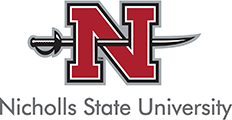How Graduates Can Write a Resume with No Experience was originally published on Resume.io.
How Graduates Can Write a Resume with No Experience
Securing the best possible role after college or university is a top priority for any recent graduate. You didn’t study hard for all those years to settle for second best. But how do you go about securing a worthy first job with little or no experience under your belt?
Well, it all depends on your definition of experience.
Employers of early-career professionals are used to looking deeper for hints that you have what it takes. They will sense potential in your internships, understand the motivations behind your volunteering and appreciate the skills that you developed during your projects.
Those are all incredibly worthwhile stories to tell.
So, how do you compose a resume when you don’t have much formal work experience?
The no-experience resume starts with a surprising summary. The hiring manager won’t be expecting much from a graduate resume, so tailor your career objective to the role, share your personal motivations, and mention only the most relevant internships, volunteering or project work. You will have more to say than you think – keep it brief and powerful.
While graduates lacking in imagination might stare at the work experience and skills sections of a resume in horror, the enterprising grad will sense an opportunity. They will share their internships, projects and volunteering roles in the work experience section and select intriguing skills that other grads will not be able to boast. The grad resume with no experience should serve as a hint of what is to come. Depth of detail is not expected.
Finally, the education section of an early-career resume will obviously be carefully dissected. Share relevant research projects, dissertation details and academic achievements. Anything that hints at you going over and above what was expected should be included. Those few years were crucial for your development – what did you learn about yourself?
Education, internships, volunteering, and projects. Plenty of scope to make your case.
Let’s explore each one in more detail:
Education
If you have no formal employment experience (however casual), there is still much that you can say about your education. Share your GPA (if above 3.5), explore your projects and research assignments in detail if they are relevant.
While soft skills are assumed for seasoned professionals, it is worthwhile for a student with no experience to highlight study skills such as team work, communication and critical thinking. Education is the one section that is comparable across all applicants, so choose what you share wisely. Refrain from oversharing unimpressive detail that anyone can boast.
Internships
Many higher education courses include internships as part of the curriculum. Many employers would view these temporary activities as a first taste of employment, so demonstrate that you have what it takes to work in a formal setting. Unpaid internships show dedication to your career path and are often no less worthwhile than paid opportunities. Depict these formative experiences as stepping-stones to your first job.
Volunteering
Volunteering experiences do not need to be specific to the industry or role that you are applying to. Few students can predict their future career path with any confidence, so volunteering roles that showcase a wide range of skills will be valued. Share how you learned from those around you and quickly picked up the necessary skills for the role.
Projects
A graduate’s first few years at work are going to be filled with time-limited activities with a specific goal. Such a framework makes it easier to manage their development. The projects that they took on during their education will showcase their organizational skills and their ability to influence others. Projects rarely run smoothly, so talk about how you reacted to setbacks, pivoted in a new direction when required, and always kept your eyes on the goal.
What you choose to share when you have minimal, or no experience can make a huge difference in terms of elevating your application above others. While the scale of what you share will not hit the heights of a more experienced professional, the direction and potential that you hint at will be unmistakable in a well-written no-experience resume.
It is worth spending a considerable amount of time researching your approach before you sit down to write your resume with no experience. This in-depth guide from Resume.io could be the best 20 minutes that you spend today.
You will need a resume for your first job. Make sure that you back up your career vision with relevant experience. If you look deep enough, you might surprise yourself.





